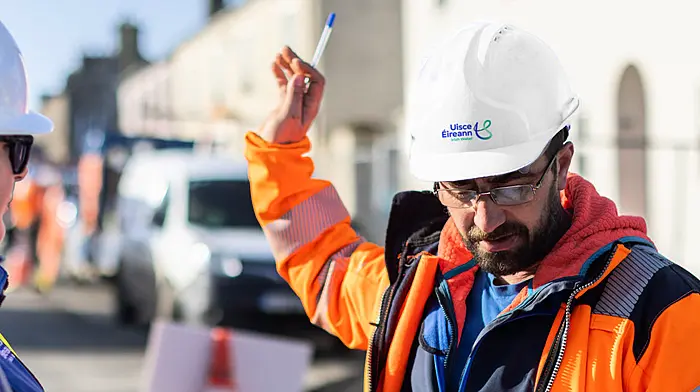AS the good weather spell looks set to continue for another few days, albeit with a few light showers due intermittently, there are now increasing fears for water resources.
It’s true that us Irish are hard to please – we complain endlessly about too much rain, and when the sun shines, it doesn’t take us long to start wishing for a few drops of the wet stuff again!
Of course, as every farmer knows, everything is good in moderation, but if the next week does not produce some decent rainfall, it could spell trouble for crops and animals, with fears of the drought of recent years returning.
We all remember only too well the hose-pipe bans and the clamour for water butts to contain what little rainfall we got, in some recent summers.
And the current dry spell was only a few days in progress when we had a water restriction warning from Clonakilty.
And those warnings are continuing. Irish Water – or Uisce Eireann as they like to be known after their recent €100,000 rebranding project – has this week issued a statement saying there is still a high demand for water in the town and its environs.
As a result of the demand, combined with the ongoing low rainfall levels, areas of the town will again see night-time water restrictions every evening, from 11pm to 7am, until at least Friday.
But anyone who is observing the long range weather forecast will know that those restrictions are unlikely to be lifted any time soon. And, if anything, other areas may well be brought under the same curtailments if the warm weather continues.
For example, this week customers on the Cape Clear water scheme were also being urged to conserve water as the supply is ‘struggling to meet demand’, according to the utility.
Customers are being asked by Irish Water to play their part in trying to cut back on water usage where possible.
But given that the current low supplies are happening at the very start of the summer holiday season, and while primary schools are still open, so young schoolchildren are not yet ‘out and about’, things are not likely to improve anytime soon.
Add to that the fact that Ireland has been experiencing warmer summers in recent years and the trend shows no sign of reversing, maybe it’s time the government started to really push the water conservation issue.
We know how well the plan for water charges went down during the ‘austerity’ years. Charges, despite how unpalatable they seemed at the time, would have had the dual roles of promoting conservation and also helping to finance a more efficient supply system.
But we have parked them for now at least, if both the Taoiseach and Green Party leader’s past comments are still holding.
This, despite a suggestion from the OECD that charges would be an important part of our climate action measures, as water is set to become an increasingly valuable resource in the future.
But with water restrictions now a common part of Irish life, whether due to shortages, leakages or pollution, surely we should not wait any longer to start making excessive water usage as anti-social as smoking or burning waste.
However, asking the Irish to turn off the taps when children are begging for paddling pools, hotels need to supply their spas and swimming areas, and everyone wants to be able have a wash on demand, and not to a restricted schedule, could prove difficult in a culture that loves making rules, just to break them.
So maybe it’s time to look at other options. For a small country surrounded by seas, it seems ironic that we have to suffer a lack of water at all. Desalination – the process by which salt is taken out of sea water to make drinkable – has often been dismissed as an expensive process that doesn’t provide enough of a resource to make it feasible for large countries, but it might be time we looked at it again, given our compact size and location.
In the past, the process was seen as overly dependent on energy, thus negating any positive effect for the environment of creating a new water resource. But with more environmental energy systems now within reach, it could solve at least some of our water problems. Whatever the country decides, the past few weeks are yet another wake-up call that we should not delay in tackling what is likely to become an annual headache.










